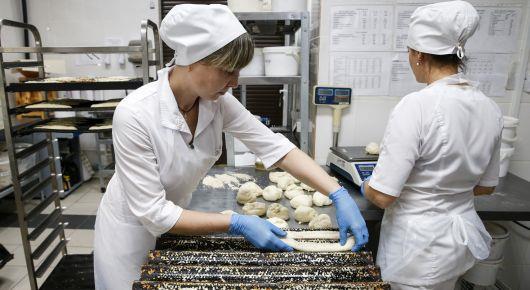Codex meeting for Europe and Central Asia draws to a close

The Codex Alimentarius Coordinating Committee for Europe (CCEURO) concluded today with the adoption of a report outlining discussions on food fraud, emerging food safety and quality issues, use of Codex standards, updates on recent global conferences organized by FAO and the World Health Organization (WHO).
Thirty member countries and the European Union met this week in Almaty to discuss and deepen collaboration on food safety and quality issues. The biannual event is a unique meeting for the region that enables networking between food safety control authorities and direct discussions with FAO on food safety and quality in the region.
The keynote speech delivered by Paul Brereton from the Queen’s University Belfast, generated high interest and discussion throughout the week. In his address, Brereton stressed that food fraud can pose high risk for consumer health, result in food waste, have financial consequences for food businesses, and damage consumer trust in food enterprises, as well as the country. He advocated for complete and accurate information on food products to reduce those risks.
Meeting participants also worked on a regional work plan responding to the goals and objectives of the new Codex Strategic Plan.
“This meeting is a great opportunity to discuss ongoing work supported by FAO, as well as identifying upcoming needs,” explains Mary Kenny, FAO food safety and consumer protection officer.
Furthermore, an important event held prior to the meeting on antimicrobial resistance, facilitated countries to update each other, and share information on work completed to address it, and the need for ongoing collaboration and initiatives to address this issue. Antimicrobial resistance is widely recognized to be one of the twenty-first century’s greatest threats to health, welfare, and food security.
Established jointly by FAO and WHO, Codex Alimentarius is a collection of internationally adopted food standards and related texts presented in a uniform manner. These standards and related texts aim at protecting consumers’ health and ensuring fair practices in food trade.
With nearly one in ten people in the world – an estimated 600 million people – falling ill after eating contaminated food, no one can underestimate the importance of food safety. FAO and WHO underline the importance of everyone's access to safe, nutritious and sufficient food, and that safe food is critical to promoting health and ending hunger, two of the primary aims of the Sustainable Development Goals.
To this end, the ever first World Food Safety Day was marked globally on 7 June this year.
“It was encouraging to see the strong representation from FAO member countries in the meeting, and there are clear actions for continued collaboration throughout the whole region to address common food safety and quality issues,” added Kenny.
4 October 2019, Almaty, Kazakhstan
